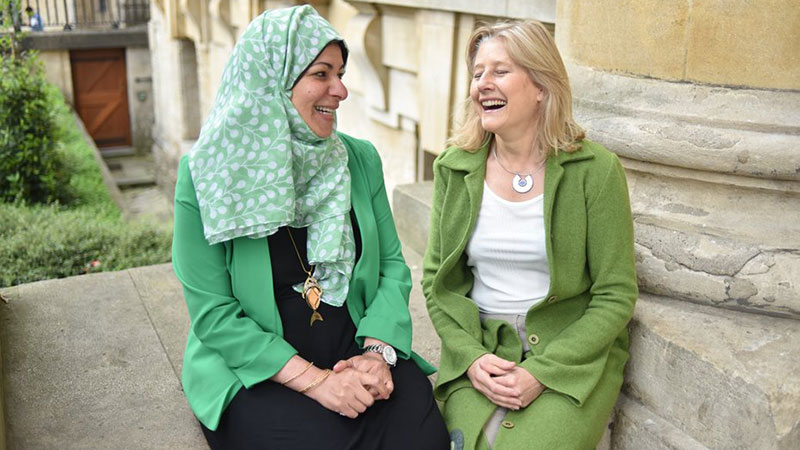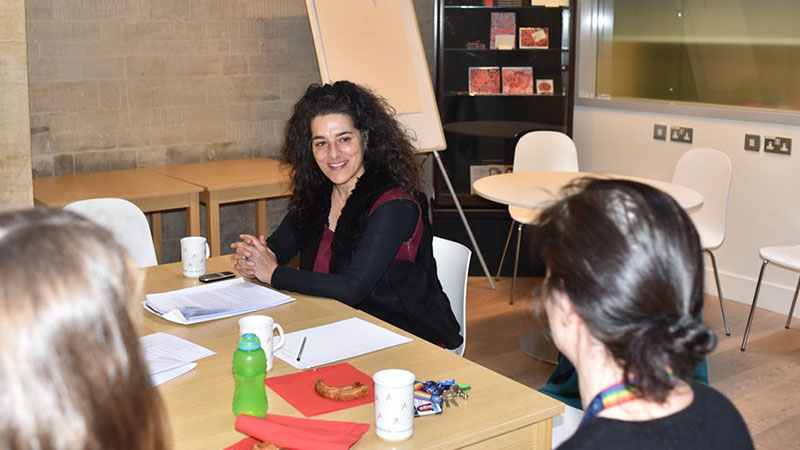Rehumanising People in Extreme Situations
Credit bearing module
Key facts
Course code
RPES7001
Start dates
September 2025 / January 2026 / October 2026
Application deadline
Note that following acceptance of your application you will then need to complete the separate enrolment process.
Location
Academic level
7
Academic credits
20
More details
Delivery dates:
This course is not available to students classed as International for fees purposes.
Overview
This module is aimed at professionals, students and volunteers who need to understand more about working with refugees, asylum seekers and vulnerable migrants affected by trauma and complex PTSD.
It will be challenging and thought provoking. You will develop the skills and understanding needed to support people who:
- have been displaced from their home countries through war, civil unrest, and/or the targeting of minorities
- had difficult journeys to the UK
- are arriving in a country that is new and sometimes hostile
- have experienced other highly traumatising events.
This understanding is needed by front line staff and volunteers - both service providers and counsellers. It's for individuals working (or intending to work) in a range of professions, including:
- Social Workers
- GPs
- housing officers
- midwives
- and those working on the frontline in camps, hotels and on borders.

How to apply
Terms and conditions of enrolment
When you accept our offer, you agree to the Terms and Conditions of Enrolment. You should therefore read those conditions before accepting the offer.
Application process
Apply through our Moodle portal.
Tuition fees
Questions about fees?
Contact Student Finance on:
Tuition fees
Fees quoted are for the first year only. If you are studying a course that lasts longer than one year your fees will increase each year.
How and when to pay
Tuition fee instalments for the semester are due by the Monday of week 1 of each semester. Students are not liable for full fees for that semester if they leave before week 4. If the leaving date is after week 4, full fees for the semester are payable.
- For information on payment methods, please see our Make a Payment page.
- For information about refunds, please visit our Refund policy page
Financial support and scholarships
Additional costs
Please be aware that some courses will involve some additional costs that are not covered by your fees. Specific additional costs for this course are detailed below.
Learning and assessment
The module is taught by Refugee Resource, a non-profit organisation, with almost 25 years of experience providing psychological, social and practical support for those vulnerable migrants who need it. Using cross-cultural references, it will critically review the circumstances which cause people to become displaced and examin what happens to brains, bodies and sense of humanity when people lose control of their lives.
The module will examine the experience of arrival in a 'hostile' 'place of safety' and the impacts. This module will explore what causes people in the 'host countries' to respond so negatively to these arrivals and build on the practitioners' understanding of why host country institutions and their staff sometimes react as they do in the face of massive traumatisation and loss.

Learning and teaching
On successful completion of the course students will be able to:
- Critically assess the importance of home and the impacts of traumatically losing home and safety
- Critically evaluate the journeys people take when they are forced to flee homes and countries, and the impacts of what happens on these journeys
- Analyse and critically evaluate what happens to people, physically, emotionally and mentally when they arrive in a ‘safe’ country that turns out to be hostile in some way, why this happens and what it means, individually and societally
- Identify, summarise and interpret the symptoms of Complex Post-Traumatic Stress Disorder (CPTSD) and their physical presentation, in the context of living in poverty and insecurity with a changed sense of identity in a host country.
Programme changes:
On rare occasions we may need to make changes to our course programmes after they have been
published on the website. For more information, please visit our
changes to programmes page.
